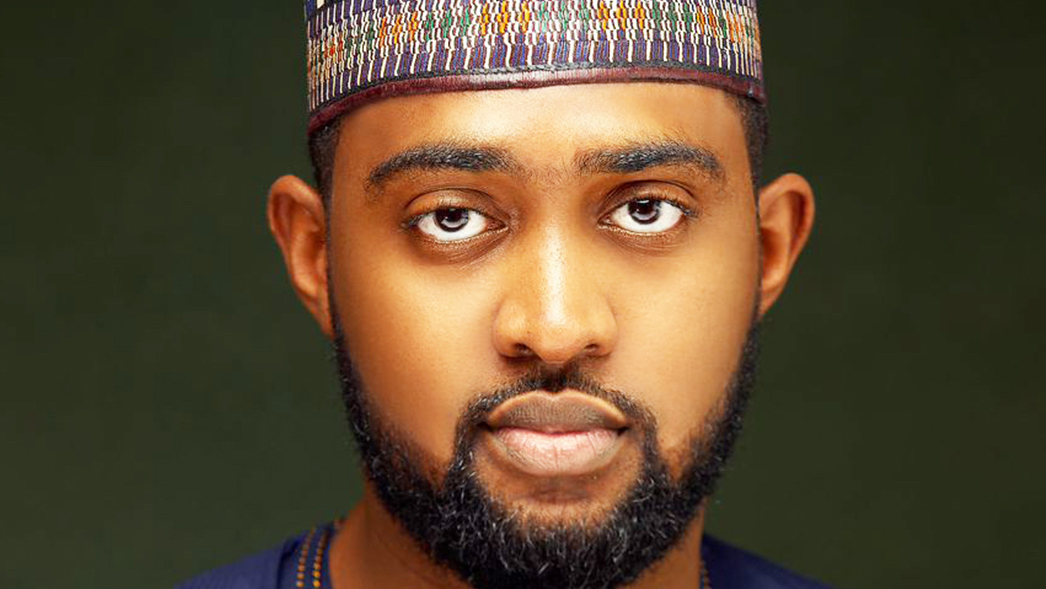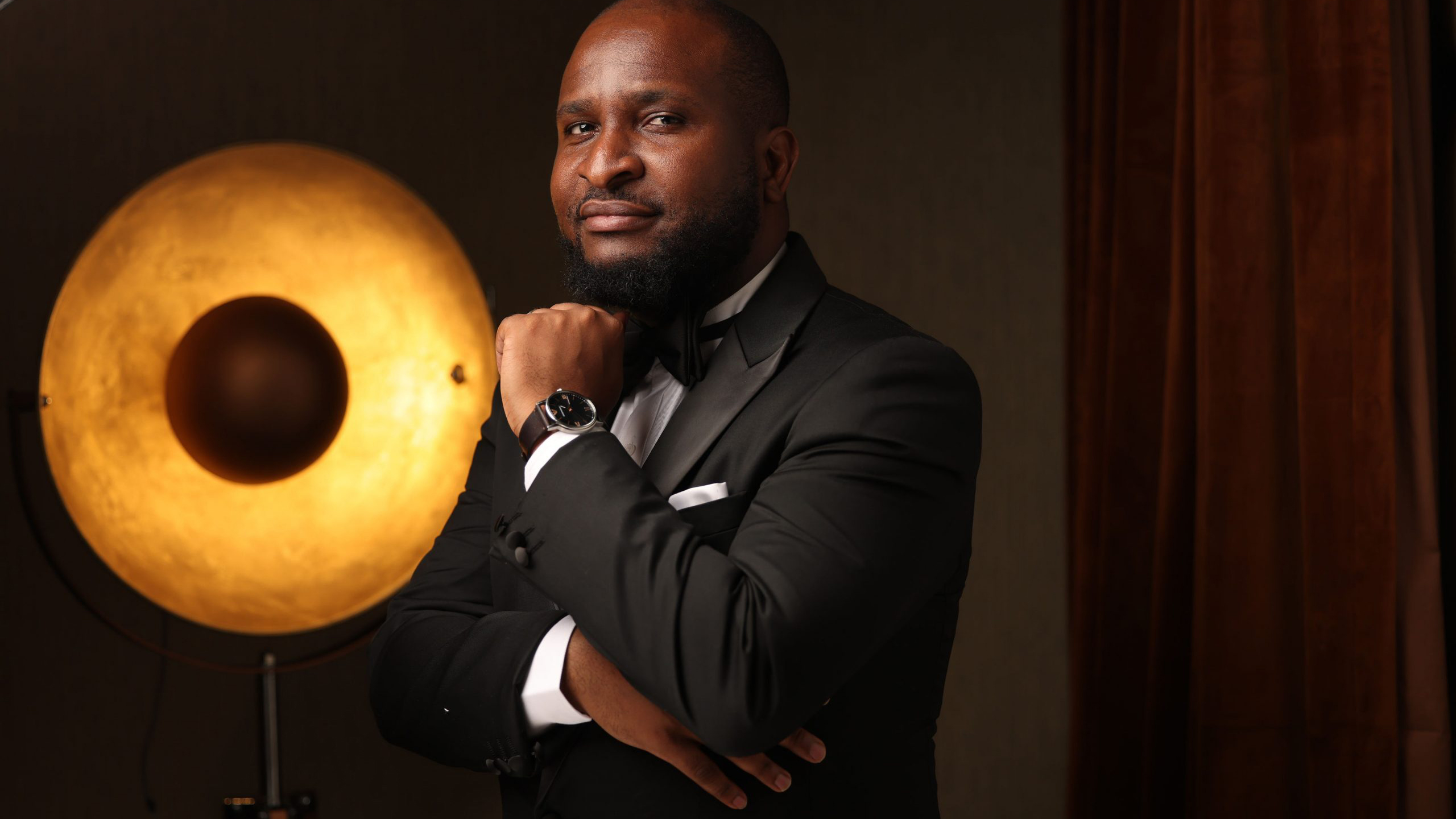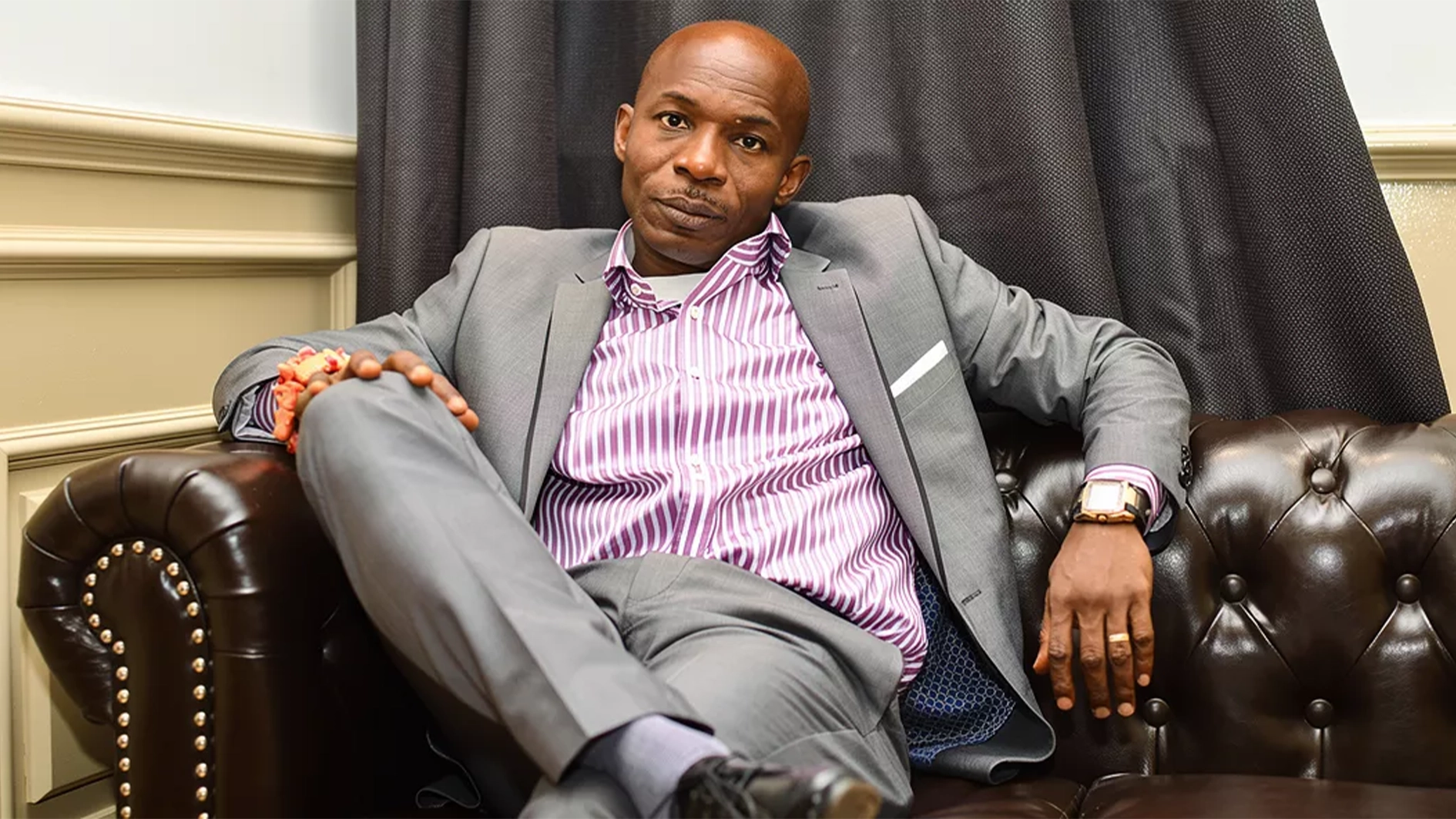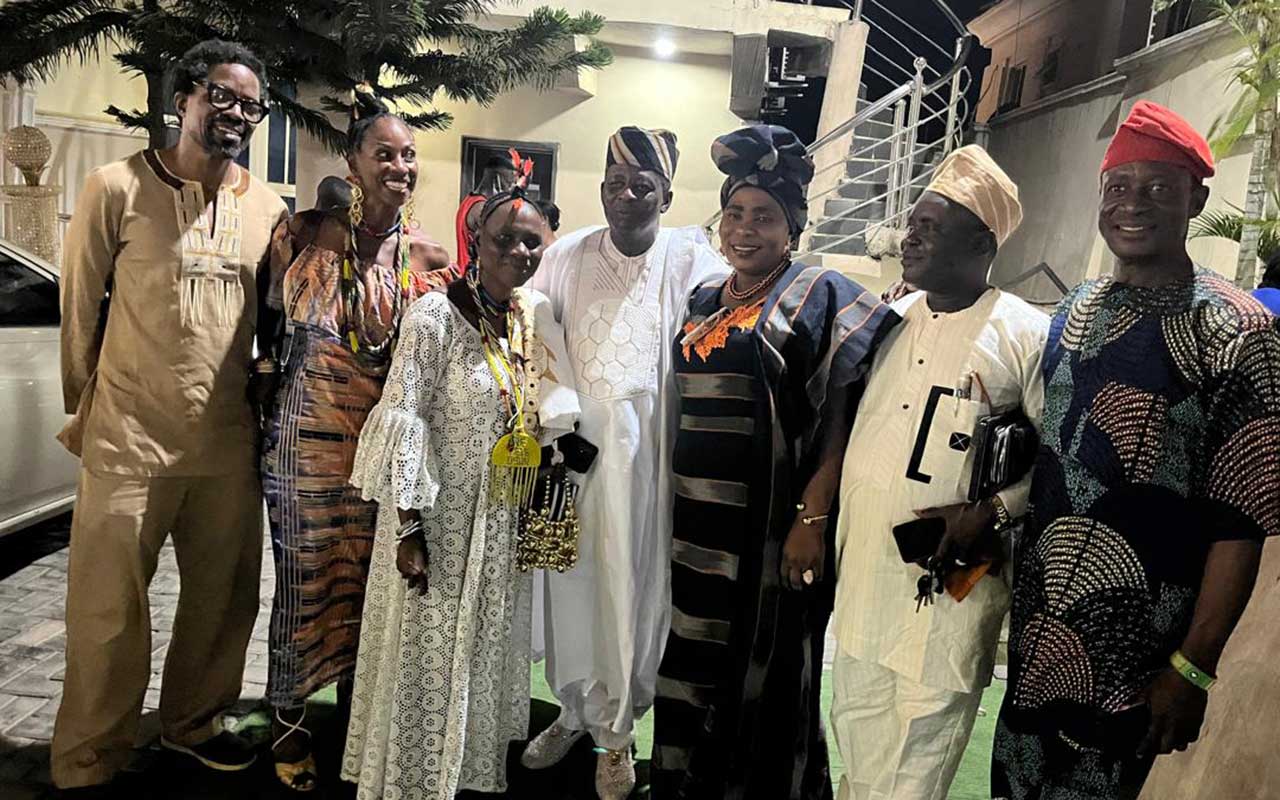
The importance of history and historians was highlighted recently when scholars and eminent Nigerians gathered last Sunday in Osogbo to celebrate the appointment of Professor Siyan Oyeweso as the pro-chancellor of the Obafemi Awolowo University (OAU).
Although the event was meant to be a merrymaking one, probably because of the personality involved and his contribution to research, the significance and the role of history and historians to a society’s development became the thrust.
And this was evident in the presentation by Emeritus Prof. Toyin Falola who bankrolled the event and travelled all away from the US to be part of the memorable evening. Falola stated that traditionally, or maybe generally, historians are often downplayed because society does not understand the very connection that exists in their craft and the maintenance, if not sustenance, of a virile and agile society.
“Beyond scribal documentation of the epochal events that occur in a place and to a people over some time, the masses are often unaware of the tremendous ways through which historians offer their contributions to the advancement of the world.
“Firsthand experience, however, has revealed that not only are historians the foundational pillars that provide stamina for societal infrastructure and philosophy, but they are also the backbone that makes their continued existence and sustenance possible.
“Being an historian, for example, was what exposed Professor Oyeweso to the art of understanding the rubrics of Nigerian society to the extent that he views the unspoken contributions of institutions that are otherwise unknown or unfamiliar because of their composition.
“The brilliance of Oyeweso, while it shines through the avalanche of publications that are associated with his name, remains glistering in his examination of the superordinate efforts that the Seventh Day Adventist church is making to change the dynamics of Nigerian society.”
Falola added that his discoveries and recommendations are great ones that helped to understand how human society works. “You’ll have to confirm for yourself and not take my words for it when I tell you that the professor has laid bare very profound groundwork through which the church has contributed to the monumental increase of human values demonstrated in how they manage human resources.
“While the information that Babcock University, which he examined, has established itself as a formidable private university that sheds the country’s burden to provide admission for the admission-seeking students is available for anyone to access, what is not commonly accessible at the surface is his discovery that it has become a foundation of solid moral identity guiding students in their engagements and helping youths to navigate the complex world.
“It remains very consistent that anyone who understands the operation of the world would know it is almost difficult to build purpose-driven youth who are not burdened by the overwhelming moral delinquencies that are the signature of the current world. Looking at the significance of the church from the angle of what they signify or symbolize in the Nigerian context helps to inform us of the various dimensions that several institutions can come into play in the project of active nation-building.”
Falola observed that Oyeweso maintains that the solid products associated with the church as an institution help to prevent the nation from sinking into the abyss of terror and conflicts.
“Connections between the offering of quality intellection to students and preventing a chaotic atmosphere lie in how the application of their knowledge helps them to navigate the world as it should be. Successful historians, the category of which you would comfortably find Professor Oyeweso, are boastful of the habit of conducting very daring research which would lead to the emancipation of the world from the burgeoning influence of some forces.
“One cannot but marvel at the academic brilliance of this man when he examined the foundations of conflicts and organised crimes in Nigeria and how they have stewed for a long time. He reckons, for example, that in a world connected by technologies and enhanced by globalization, the possibility of crimes crossing countries cannot be overemphasized.
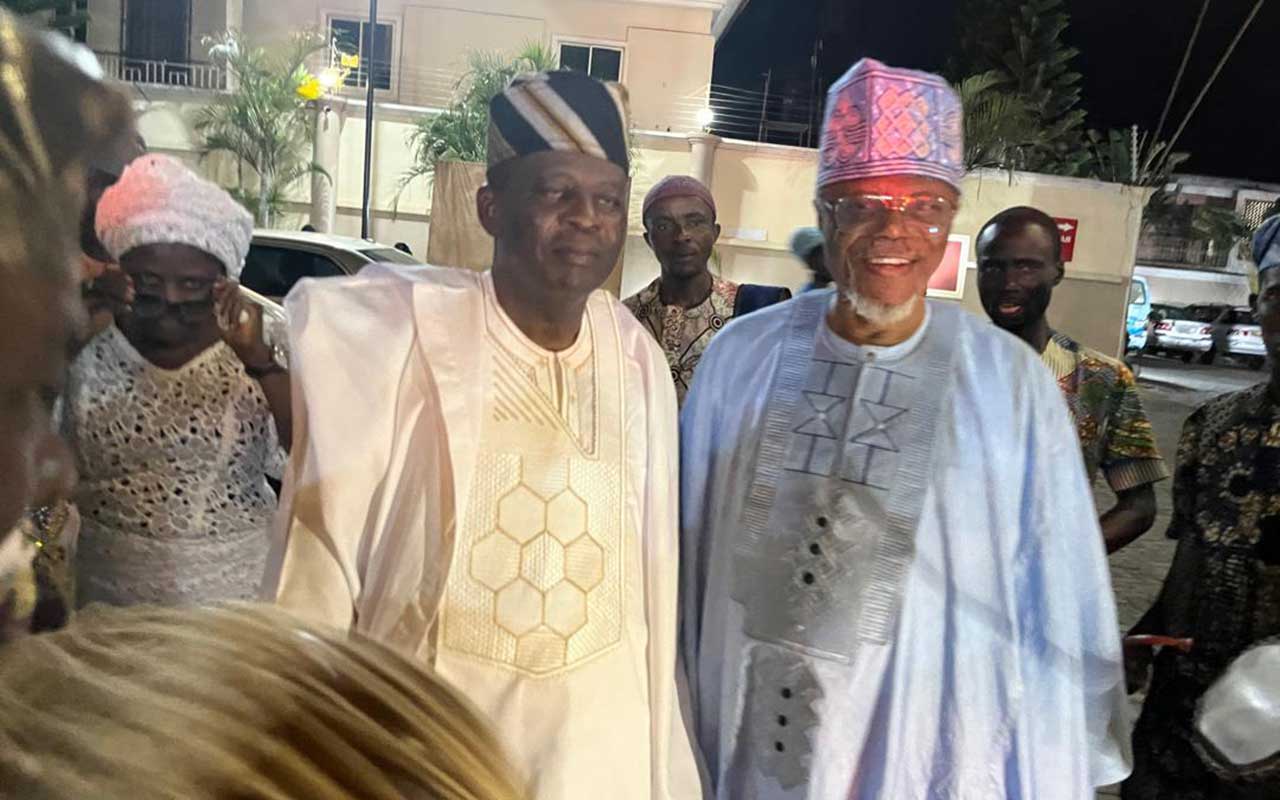
“This means that the volatility of human society will always encourage some crimes that will eventually contribute to the breakdown of systems. He mentions, for example, that the acceleration of crimes that have become synonymous with Nigerian geography comes from the knowledge that there is a syndicate of crimes that are beyond a single country.
“Crime entrepreneurs derive maximum profits from the engagement and will, therefore, deploy their power to challenge anything that inhibits their aspirations. Oyeweso intones that the construction of relatively weak states in Nigeria, which occurs potentially because of the over-concentration of power to the centre, has continued to encourage the crime networks to expand their tentacle because not only do they have sophisticated weapons and technology at their disposal, but they also enjoy the notoriety of their gangs abroad to carry out destructive engagements in the country.
“To him, prevention works better to secure lives and properties. I revel in the happiness that historians have been the custodians of, and conscience to, society from time immemorial. It is so because they have the natural freedom to investigate any area of existence and extract information and knowledge that could potentially redeem the human world.
“Oyeweso comes off as a resourceful individual once again for the fact that his searchlight of research has been beamed to the behaviour of Africans, especially Nigerians, in relation to how they have survived in the world before and the aftermath of their contact with Europeans.
“The fact that an alternative Medicare and healthcare delivery has become preeminent in today’s engagement attests to the inviolability of native knowledge in tackling health challenges that prove threatening. This professor argues in one of his research engagements that the plummeting of global medical services and awareness comes from the homogenization of the healthcare system to promote an agenda.
“Although he is not a medical scientist, his expertise in history has compelled him to come to a life of inquisition, which reveals that the success recorded before the ascendancy of Europeans in addressing their medical challenges owes its beginning to the indigenous modes of treatment. While noticing that there had been numerous efforts towards the stabilization of the medical issues facing the world, he also mentions that there is a need to diversify approaches, especially since alternative approaches could potentially bring desirable results.
“It is often difficult to come across individuals who have dedicated themselves to the good of the human family without being rewarded bountifully for their engagements.”
Nature has a way of rewarding people’s contributions, and the fact that Oyeweso has enjoyed substantial recognition for his efforts attests to this conclusion. It remains true that the recent appointment to function in a university governing council comes from the recognition of the various efforts that he has put in place.
“He has not only shown that he can handle different things successfully together simultaneously, but he has proven that his secret to success lies in his unwavering commitment to lifechanging engagements. Much as it requires his mind and body and promises to be of tremendous significance to human society, Oyeweso always provides his moral and ideological resources for the enhancement of a better society.
“This perhaps accounts for the reasons why he is a success in nearly all his involvements. Having him serve in different positions both at schools where he has functioned as a faculty member and the beyond-the-school engagements where he has been called to serve in various capacities, the fact that he has recorded intimidating success there supports the claim that he would always be golden in the general scheme of things. Professor Oyeweso is worthy of celebration, and it comes as no surprise that this piece tries to achieve that,” Falola stated.
Even though he is a renowned historian celebrated home and abroad, Oyeweso is out to make history in his new assignment and this is evident in his inaugural speech when he addressed OAU council members and the institution’s management team recently.
Addressing the great gathering, he said: “Although watersheds rarely occur in history, my appointment as the Pro-Chancellor and Chairman of Council is a watershed in the history of Obafemi Awolowo University in some respects. First, since the inauguration of the pioneer Council on June 8, 1961, with the legal colossus, Chief Frederick Rotimi Alade Williams, as the pioneer Chairman, I remain the first alumnus of this great University to serve the University as the Pro-Chancellor and Chairman of Council.
“It is on record that Prof. Wale Omole made history as the first Alumnus Vice-Chancellor of this University. Today, Prof. Siyan Oyeweso is also on the platform of OAU as the first alumnus to serve as the Pro-Chancellor and Chairman of the Council. Secondly, prior to the inauguration of the 21st Governing Council, only three Professors had been privileged to serve as the Chairmen of the Council: Prof. J.M. Falaiye, Prof. S.I.S. Cookey and Prof. Roland Ndoma-Egba. I am the fourth Professor to serve in this capacity. Thirdly, I am the 21st Pro-Chancellor of this great citadel of learning, my immediate predecessor being Owelle Oscar Udoji (2021-2023).
“I must, on behalf of other Government-appointed members of the Council, express our profound appreciation to the President of the Federal Republic of Nigeria, Asiwaju Bola Ahmed Tinubu GCFR for finding us worthy of this noble national assignment. We pledge our unflinching commitment to the educational agenda of BAT’s Administration. We promise to deliver and we will not fail him.”
After providing an historical narrative about the conceptualization, birth and growth of OAU, Oyeweso, who noted that in spite of the successes recorded over the years by the institution, there is now a greater opportunity to build on the work of the founding fathers, especially as a critical look at what is currently on ground shows that there are still a lot of work to be done.
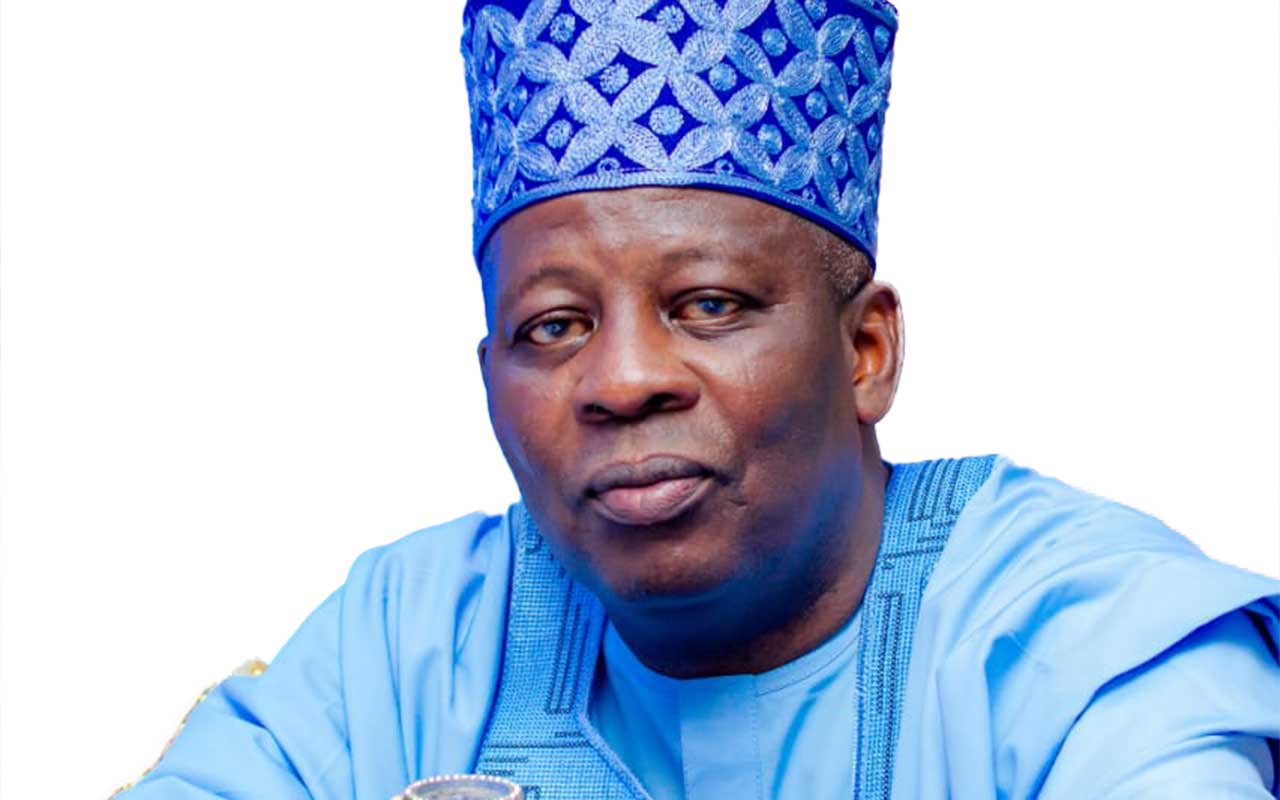
“We must help to nurture the next generation of Africans and by that, give them renewed hope about the future. We must create an authentic African University with our voice and stature recognised worldwide. We should not ape foreign ideals to the neglect of our own vision and mission of ensuring human dignity. With you, we shall jointly build on your past and present work and also tackle the emerging challenges facing this institution.
“As joint stakeholders, I shall collaborate with you and other stakeholders to ensure the smooth running of this great heritage. It is given that the intellectual stature of this university must not only be maintained but also advanced further so as to stand tall in the midst of all world class universities. But our work goes beyond the ordinary. It must be extraordinary in all respect. I shall point out a few now.”
Imploring council members and the management team to join hands with him to make history for OAU, the country and the world at large., Oyeweso enumerated his vision for the institution going into the future of making it a reference point for innovative research and development, an international centre of excellence and a catalyst for development and environmental sustainability.
To achieve these goals, he said that the Council will lobby the government and the private sector for more funds to support its objectives as well as ensure efficient resource management and provision of needed infrastructural development to boost the quest for excellence.
“To this end, international partnerships and funding will be considered to propel the ambitious aims and objectives of the OAU. My tenure shall ensure there is a culture of excellence and innovation for OAU to maintain the best in the Nigerian higher education sector and, by implication, the best in the world.
“One of the important points of our strategic plans is the renewal of campus premises. The majority of buildings and some infrastructures are in need of refreshment in order to meet the present standards. Lecture halls, laboratories and residential blocks will be repaired first. To provide the increasing number of students with attractive premises for study and research, it is imperative to implement the development of new infrastructure.
“The digitalization of our key elements of infrastructure constitutes the essential thing that we must pay our primary attention to nowadays. We are going to develop and implement perfectly coordinated digital transformation agendas at our university establishments to provide high-quality digital tools and tech for students and lecturers. This implies updating the Internet connectivity in public spaces and classrooms, creating new e-learning platforms, and introducing smart ed-tech to our educational programmes.
“Another area for us to focus on is to expand our research capacity. One thing we want to do is to grow our sponsored and contract research. We aim to attract both public and private foundational funding for impactful research projects, but we will also not shy away from strategic collaborations with private sector organizations to push the boundaries of innovation as we grab opportunities to fund sustainability-oriented research that contributes to global societal issues. The university will also create an innovation culture where interdisciplinary collaboration thrives, and value is placed on entrepreneurial activities by our students and staff
“One of the defining features of OAU is its staff, whose outstanding knowledge and passion for teaching will greatly contribute to the quality of learning of our students. In this regard, we will invest in faculty development initiatives to build the intellectual and pedagogical capacities of our staff. This will involve opportunities for professional development programmes as well as support for staff members to establish international linkages and recognize and reward highly commendable scholarships.”
In his tribute, Professor Lai Olorode said: “We will be asking Allah to guide you and bolster your courage, as one of our leaders, to be just, even, in difficult circumstances. There will be conflicting demands on the deployment of your limited power of discretion. Have an effective assistant, perhaps a lawyer from within the system who understands both university governance and politics. Be fair to all who come before your court, read the university law and seek better understanding of grey areas.”
On his part, Professor Duro Oni congratulated him, noting that his appointment is truly well-deserved. “You have made us proud.” Also, Dr Olusanya Awosan is optimistic that, by the grace of God, Oyeweso will succeed. “I believe it is now time for us to think outside the box and employ innovative, private sector-driven solutions to address the evident funding challenges facing our universities, particularly our Great Ife. Please let me know when you are in Lagos so we can exchange ideas.”



